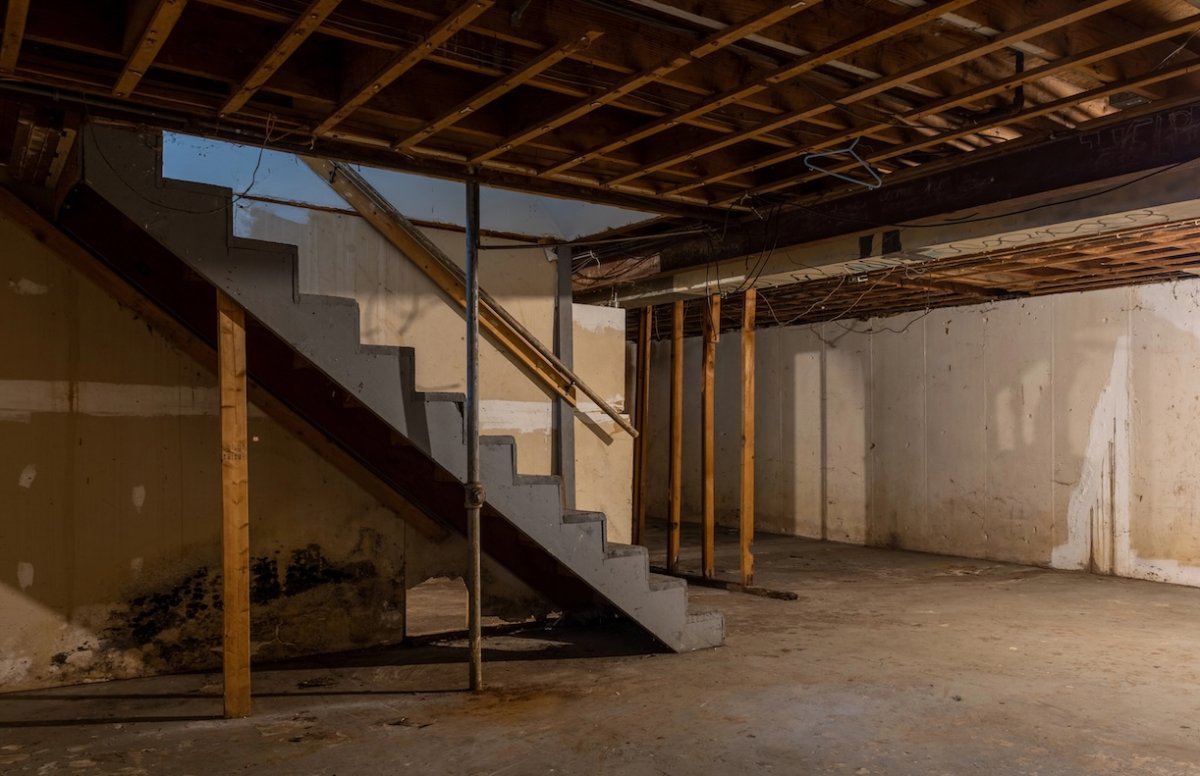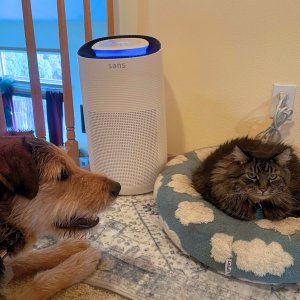

We may earn revenue from the products available on this page and participate in affiliate programs. Learn More ›
Roughly 1,200 tornadoes strike the U.S. each year, with the most violent ones reaching wind speeds upward of 150 mph. In 2024, 1,796 tornadoes struck the U.S., the second-highest number since official tornado recordkeeping began in 1950. Unfortunately, 2025 is on track to be yet another big year, with 1,500 confirmed tornadoes as of August.
Although these powerful storms are famously active along Tornado Alley, which runs through Nebraska, Kansas, Oklahoma, and Texas, tornadoes have occurred in all 50 states. “Tornadoes can happen anywhere and any time of the year,” says Stephanie Fox, media relations lead for the American Red Cross. “That’s why it’s important to be prepared when there are instances of severe weather making its way across the country.”
When a tornado threatens, the basement (if you have one) is usually the best place to take shelter. Don’t wait for an emergency: Make a plan now and follow these steps for getting your basement tornado-ready to ensure your family’s comfort and safety before, during, and after the storm.
Pro tip: “A mobile home is never safe in a tornado. Pre-identify a safe location, such as a nearby sturdy building, a friend or family member’s home, or a local shelter,” and get there well before a tornado is spotted. “Being in a vehicle or being outside during a tornado is not safe. If you are unable to make it to a safe shelter, stay buckled up, get low in your car, and cover your head, or abandon your car and seek shelter in a low-lying area such as a ditch or ravine,” Fox suggests.
1. Make your emergency plan.

Emergency preparations should happen long before a tornado looms and should involve more than just stocking up on supplies. As part of your emergency plan:
- Pinpoint the safest spot in the basement (well away from doors, windows, and heavy items).
- Make sure everyone in the family knows to head down to the basement when there’s a tornado warning.
- If possible, plan to shelter under something strong, like a secured heavy worktable or bench.
- Know the locations of utility shutoffs and how to shut them down.
- Secure your water heater to the wall or floor with straps, if possible.
2. Assemble a preparedness kit.
Keep the following items in a plastic bin or other container in the basement. Check your kit at least every 6 months and replace anything that has expired.
- Flashlights
- Weather radio, ideally with a charging port
- Batteries
- First-aid kit
- Prescription medications
- Whistle
- Toilet paper, a bucket, and garbage bags
- Paper towels
- All-purpose cleaner
- Cell phone chargers
- Dust masks
- Cash
- Important family documents (stored in a fireproof and waterproof box):
- Birth certificates
- Ownership certificates and deeds
- Social Security cards
- Insurance documents
- Household inventory
- Fire extinguisher
- Wrench or pliers for turning off utilities, if necessary
Helmets for everyone in the family are also a good idea. In a report on injuries in the aftermath of tornadoes that struck Oklahoma and Kansas on May 3, 1999, the American Meteorological Society noted that head injuries accounted for 23 percent of deaths. Even a bike helmet can help.
3. Stock up on food and water.

Although most tornadoes last, on average, about 5 to 10 minutes, travel in the aftermath of the storm can be difficult and dangerous. According to Ready.gov, you should be prepared to survive on your own for 2 or 3 days. So, especially if you live in a tornado-prone region, keep these food supplies easily accessible in the basement, and refresh them periodically to make sure they’ll still be good when you really need them.
- 1 gallon of water per person per day (plan on at least 3 days’ worth)
- At least 3 days’ worth of nonperishable food, such as:
- Canned foods: meat, fish, fruit, vegetables, beans, and juices
- Dry cereal, granola bars, and protein bars
- Snacks like pretzels, crackers, and dried fruit
- Peanut butter
- Comfort foods (candy and cookies)
- Manual can opener
- Shelf-stable milk
- Paper or plastic plates, cups, and utensils, or mess kits
- Baby food and ready-to-feed formula (if you have an infant)
- Pet food and additional water, enough for 3 days (if you have pets)
As you select foods for your stash, choose items your family will actually eat, and consider individuals’ dietary needs. As utilities may go out after a tornado, assume that you’ll be eating the food cold. While some camp stoves—for instance, denatured alcohol stoves—can be safely used indoors with sufficient ventilation and precautions, basements are notoriously poorly ventilated, so it’s best not to risk it.
4. Pay attention to comfort.
With the bare necessities covered, focus on items that will make an extended shelter-in-place a little more comfortable, particularly for families. Soft, warm sleeping bags and blankets, cots, and extra clothing can boost both comfort and morale. (Blankets can also be used for protection during a tornado.) Don’t forget about blankets and beds for any pets.
5. Plan for distractions and amusements.
A beloved stuffed animal, children’s books, a few board games, and coloring books and crayons will provide much-needed distractions for fearful kids. For grown-ups, toss in a book or some puzzle collections.
6. Prepare for pets.

Keeping dogs, cats, and other pets safe and comfortable requires some planning. A leash can help keep a stressed pup close to you, so it’s a good idea to store a spare leash in the preparedness kit, just in case you need it during or after a tornado. A spare crate or carrier in the basement can help contain or soothe a frantic pet. For cats, have a travel or portable litter box at the ready, and store small bags to collect pet waste.
7. Choose a safe spot in the basement.
While the basement is the safest place during a tornado, there are items in the basement that you will want to avoid. Fox advises: “Look for an area that is best built to withstand high winds and is away from things that may come loose and hurt you (i.e., heavy pieces of furniture, sharp objects, windows that can break open, etc.). Ideally, you’re looking for a small, sturdy room with no windows.” In general:
- Stay well away from heavy basement appliances, such as washers and dryers, refrigerators, water heaters, and furnaces.
- Keep clear of large shelving units, exercise equipment, and any other heavy objects that aren’t mounted to the basement floor or walls.
- Stay away from windows and doors.
- Avoid spots directly under heavy objects on the first floor, such as refrigerators or pianos.
8. Act quickly and stay informed.
If a tornado watch has been issued, check on your supplies, make sure your phone is charged, and get ready to execute your sheltering plan. When a tornado warning hits, get everyone down to the basement immediately. If there is time, shutting off the water, electricity, and gas can keep a dangerous situation from getting worse due to fires, floods, and explosions. “Once in your basement, keep listening to radio, TV, or other news sources. Stay in your shelter until the tornado warning is over,” Fox says.
